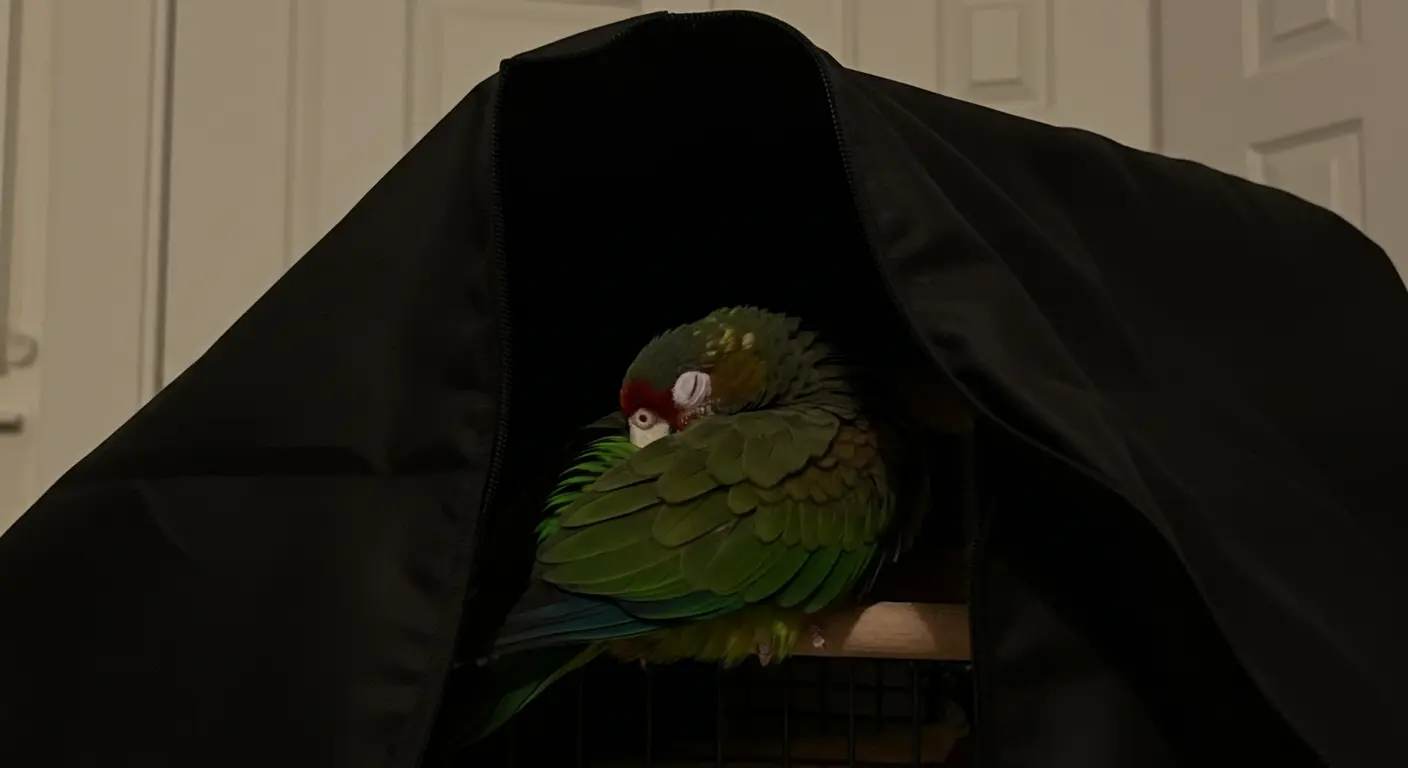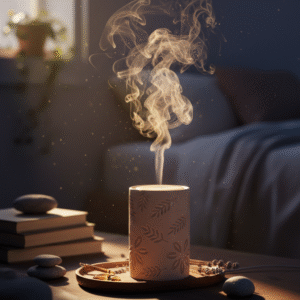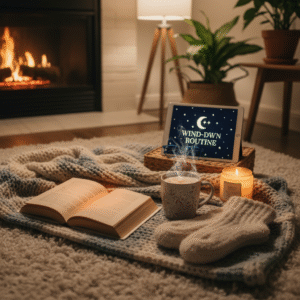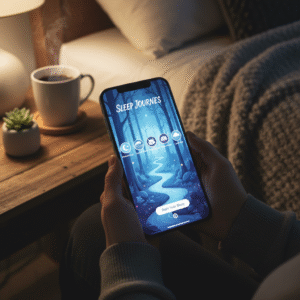Birds are incredibly sensitive to light. In fact, their internal clocks — known as circadian rhythms — are directly influenced by how much light they receive every day. But many bird owners don’t realize that artificial lighting, screen glare, or even late-night kitchen lights can seriously disrupt their bird’s sleep.
In this guide, we’ll explain how light affects your bird’s sleep cycle, what happens when it’s off balance, and how to create the ideal environment for healthy avian rest. Whether you live in a city apartment or a sunny rural home, mastering the bird sleep light cycle is one of the most important things you can do for your pet’s well-being.
—
Why Birds Depend on Light to Regulate Sleep
Unlike humans, birds don’t just use light to see — they use it to tell time. Most pet birds evolved from species that rely on the sun to regulate daily activity. From dawn to dusk, their body functions (hormone levels, temperature, energy) shift in response to changing light intensity.
This natural rhythm is called the circadian cycle. When the sun rises, birds know it’s time to eat, sing, and socialize. When the sun sets, melatonin is released, and their bodies prepare for sleep.
But in captivity, things are different. Artificial lights, TVs, computer screens, or 24-hour indoor lighting can confuse your bird’s clock — leading to sleep deprivation, hormonal problems, and even aggression or plucking.
—
How Much Sleep Do Pet Birds Really Need?
Most pet birds require 10 to 12 hours of uninterrupted darkness each night. That means no flickering lights, no sudden noise, and no glowing electronics.
Some birds — especially tropical species like parrots and conures — may need even more. In the wild, these birds often sleep from sunset to sunrise. When they don’t get enough sleep, it affects their mood, immune system, and feather condition.
Important points:
- Pet birds need complete darkness to trigger deep sleep cycles
- Even dim night lights or hallway illumination can disrupt REM-like sleep
- Sleep interruptions may cause daytime napping, irritability, or over-preening
In 2025, avian veterinarians increasingly link sleep deprivation in birds to chronic behavioral issues — including screaming, biting, and repetitive pacing.
—
Common Lighting Mistakes Bird Owners Make
Many bird owners unknowingly create poor sleep environments. Here are some of the most common mistakes that disrupt the bird sleep light cycle:
- Leaving TVs or computers on in the same room at night
→ The blue light delays melatonin production and confuses the sleep signal.
- Using night lights “so the bird doesn’t get scared”
→ While well-intentioned, this actually prevents full rest. Birds don’t need light at night.
- Covering the cage with a thin or see-through blanket
→ This blocks little to no light. Birds can still sense room activity and movement.
- Inconsistent lighting schedules
→ Turning lights on/off at random hours disrupts internal clocks. Birds need routine.
- Placing cages near kitchen or hallway lights
→ Motion-triggered or timed lights in shared spaces can cause repeated night waking.
—
How Do Birds Know When It’s Time to Sleep?
Birds have light receptors not just in their eyes, but also deep in their brain (pineal gland) and skull. These receptors detect changes in light and trigger hormones that signal sleep or wake time.
—
What Happens If a Bird Doesn’t Get Enough Darkness?
Chronic light exposure may lead to insomnia, fatigue, hormone imbalance (like overbreeding), immune suppression, and feather issues. It can also raise stress hormones like cortisol.
—
How to Create a Healthy Sleep and Light Cycle for Birds
The goal is to mimic nature as closely as possible, even indoors. That means providing regular light during the day and consistent darkness at night. Here’s how:
🕗 Stick to a 12-hour day/12-hour night schedule.
Use timers for lights in the bird’s room — for example, lights on at 7 AM and off at 7 PM.
🌗 Use a blackout cover at night.
A thick, opaque cage cover blocks all light and reduces noise. This gives your bird a clear cue that it’s time to sleep.
🚫 Eliminate screens and ambient lighting.
Turn off TVs, phones, and lamps near the bird’s cage. Move the cage to a quieter area if needed.
🌤 Provide natural light during the day.
Place the cage near a window (without direct drafts) so your bird can experience sunrise/sunset patterns.
🪟 Avoid artificial daylight 24/7.
Some owners think constant light prevents night frights — but this actually leads to stress. Birds need darkness to rest properly.
—
Should I Use a Full-Spectrum Light for My Bird?
Yes — but only during daytime hours. Full-spectrum lights that mimic natural sunlight are great for vitamin D3 production and overall health, but should be turned off at night.
—
Can I Leave the Cage in a Lit Room at Night If It’s Covered?
It’s not ideal. Most cage covers don’t block all light. Move the cage to a quiet, dark room if possible.
—
Ideal Daily Light Schedule for Pet Birds (Example)
⏰ Morning (7:00 AM): Uncover cage, turn on full-spectrum light
☀️ Daytime: Provide social interaction, toys, and activity
🌅 Evening (6:30 PM): Dim lights, reduce noise, prepare for bedtime
🌙 Night (7:00 PM): Turn off all lights, cover cage with blackout cloth
🛌 Sleep: Maintain full darkness and minimal disturbances until morning
—
Conclusion
Light is one of the most powerful regulators of your bird’s health — yet it’s often overlooked. By setting up a proper bird sleep light cycle, you give your pet the chance to thrive, rest deeply, and behave naturally.
Simple changes like blackout covers, lighting timers, and screen-free sleep zones can dramatically improve your bird’s sleep quality and mood.
Want to give your bird better rest starting tonight? Review your home lighting habits — their health might depend on it.
—
Frequently Asked Questions
- How many hours of darkness does my bird need each night?
Most birds need 10–12 hours of total darkness, with no lights or interruptions.
- Is it okay to leave a night light on for my bird?
No. Even low-level light can disturb your bird’s sleep cycle. Total darkness is best.








